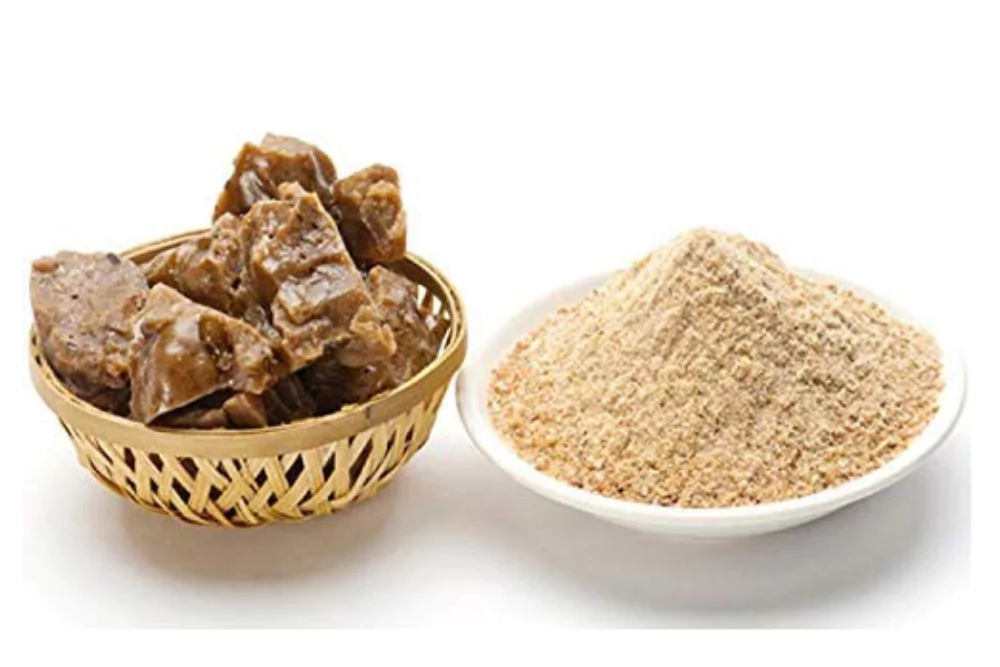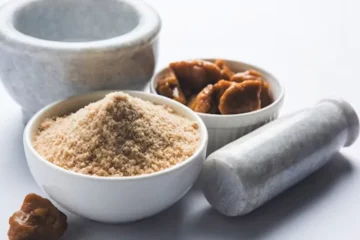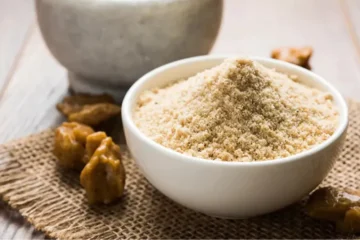What are the Ayurvedic principles behind using asafoetida to boost fertility?
Short Answer: Asafoetida aligns with Ayurvedic principles by balancing doshas and enhancing reproductive health through its anti-inflammatory and antispasmodic properties.
Detailed Answer:
- Balances Vata and Kapha doshas, essential for reproductive health.
- Improves blood circulation to reproductive organs, promoting vitality.
- Acts as an emmenagogue, helping regulate menstrual cycles naturally.
- Enhances Shukra Dhatu, which is the reproductive tissue in Ayurvedic medicine.
- Promotes hormonal balance, alleviating stress on reproductive functions.
- Strengthens digestive fire (Agni), which indirectly supports fertility.
- Reduces oxidative stress on reproductive tissues, aiding their repair and function.
Asafoetida, known as “Hing” in Ayurveda, has been used for centuries as a powerful medicinal spice. Its unique ability to balance doshas—particularly Vata—makes it highly effective in treating conditions related to infertility. A balanced dosha state is crucial for maintaining optimal health, including reproductive health. Moreover, asafoetida enhances Shukra Dhatu, which is considered the essence of reproductive tissue, supporting vitality and fertility in both males and females. These attributes underline why asafoetida is revered in Ayurvedic texts as a remedy for infertility.
How does asafoetida impact male and female reproductive health?
Short Answer: Asafoetida supports male and female reproductive health by improving hormonal balance, enhancing libido, and regulating menstrual cycles.
Detailed Answer:
- In males, it boosts sperm motility and quality, enhancing fertility.
- In females, it regulates menstrual cycles and alleviates dysmenorrhea (menstrual cramps).
- Stimulates progesterone production, aiding ovulation and implantation.
- Acts as an antioxidant, protecting reproductive cells from free radicals.
- Improves libido in both genders, fostering reproductive vitality.
- Enhances blood circulation to reproductive organs, supporting their function.
- Relieves stress-induced hormonal imbalances that often affect fertility.
Asafoetida plays a significant role in ensuring reproductive health for both men and women. In men, it boosts the quality and motility of sperm, which are crucial parameters for fertility. For women, its ability to regulate menstrual cycles and stimulate progesterone production directly aids in ovulation. Additionally, its antispasmodic properties alleviate menstrual cramps, creating a more conducive environment for conception. Its antioxidant effects shield reproductive cells, ensuring their longevity and optimal function.
Are there specific ways to consume asafoetida for fertility benefits?
Short Answer: Asafoetida can be consumed as a spice in meals, dissolved in warm water, or mixed with honey for fertility benefits.
Detailed Answer:
- Add a pinch of asafoetida to curries, soups, and other dishes for daily intake.
- Mix a small amount of asafoetida powder with warm water and drink it on an empty stomach.
- Combine asafoetida with honey for enhanced absorption and synergistic benefits.
- Use asafoetida as an ingredient in herbal teas to support digestive and reproductive health.
- Incorporate asafoetida into milk or dairy-based drinks for added nourishment.
- Prepare asafoetida-based herbal formulations as prescribed by an Ayurvedic practitioner.
Asafoetida is versatile in its application and can be consumed in several ways to unlock its fertility-enhancing properties. Adding it as a spice in everyday meals ensures consistent intake. For those seeking more targeted benefits, asafoetida mixed with honey or warm water offers an efficient delivery method. It is also commonly used in herbal teas and dairy-based drinks to amplify its effects. Consulting an Ayurvedic expert is recommended to determine personalized methods and dosages for optimal results.
What other Ayurvedic remedies complement asafoetida for enhancing fertility?
Short Answer: Ayurvedic remedies like Shatavari, Ashwagandha, and Panchakarma complement asafoetida for fertility enhancement.
Detailed Answer:
- Shatavari: Promotes female reproductive health and hormonal balance.
- Ashwagandha: Enhances male fertility by boosting testosterone and reducing stress.
- Panchakarma: Detoxifies the body and balances doshas for better reproductive function.
- Abhyanga (Oil Massage): Improves blood circulation and reduces stress, fostering fertility.
- Yoga: Promotes mental and physical well-being essential for conception.
- Dietary Changes: Include ghee, almonds, and other Ayurvedic superfoods for enhanced fertility.
- Brahmi: Calms the mind and reduces stress, indirectly supporting reproductive health.
A holistic approach is essential in Ayurvedic fertility enhancement practices. Remedies such as Shatavari and Ashwagandha provide complementary benefits to asafoetida. While Shatavari aids female reproductive health, Ashwagandha boosts male fertility and alleviates stress. Detoxification through Panchakarma and the calming effects of Brahmi further enhance reproductive wellness. Together, these remedies create a synergistic framework for addressing infertility through natural and holistic methods.
Are there any scientific studies supporting asafoetida’s role in fertility improvement?
Short Answer: Scientific studies highlight asafoetida’s antioxidant and anti-inflammatory properties, which indirectly support fertility.
Detailed Answer:
| Study/Research | Findings |
|---|---|
| Antioxidant Research | Protects reproductive cells and reduces oxidative stress. |
| Anti-Inflammatory Studies | Improves blood circulation and reduces inflammation in reproductive organs. |
| Animal Trials | Shows improvement in sperm quality and motility. |
| Hormonal Regulation Studies | Suggests effects on menstrual cycle regularity. |
| Clinical Applications | Indicates its role in reproductive health improvement. |
Scientific studies provide valuable insights into the fertility-enhancing properties of asafoetida. Its antioxidant and anti-inflammatory effects indirectly support reproductive health, protecting cells from damage and promoting better blood flow. While animal trials demonstrate improved sperm parameters, clinical research suggests potential benefits in regulating hormonal imbalances. Further investigations are necessary to establish direct correlations between asafoetida and fertility enhancement.





